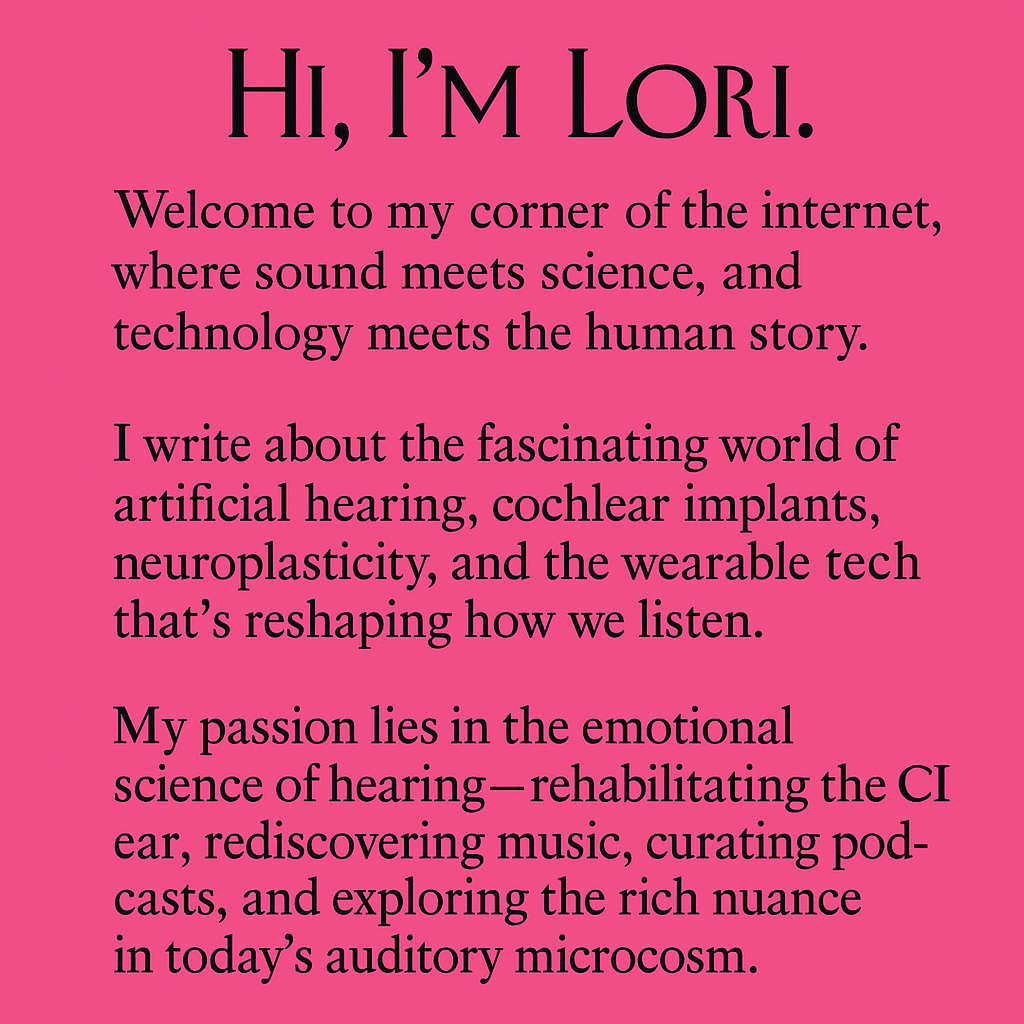The Telephone
From my submission published in The Sun
Born with severe genetic hearing loss, I was terrified of the phone. Despite my clunky array of auditory devices, nothing worked seamlessly or gave me confidence. So I learned to avoid using the phone at all costs.
Human speech is the most difficult thing to hear, even more so on the phone since I couldn't use facial cues or lipread. The phone carried me through life events, making unclear conversations louder, not clearer. Our home had two corded rotary phones with extra volume control dials— special-ordered, colorless, and drab, while my friends walked around their houses on sexy cordless telephones.
While I could speak clearly, I heard about 12% of every conversation. On the other end of the line were misheard flirts with boys, bombed job interviews, and critical details I needed—bank wire transfer numbers, employment phone numbers, directions when lost— but couldn't procure.
And then, in 2001, I discovered text messaging. The one thing I could do - type - would take the place of the one thing I couldn't do - hear. I can't stress enough how much this simple feature changed my life. Being able to engage with friends again in a quick format was exhilarating. Texting was a small step for mankind but a giant leap for the deaf and hard of hearing.
As technology changed, so did my exposure to the phone. In early 2011, American Sign Language interpreters became available by video. I could have ASL interpreters sign what the other caller was saying while I used my voice to reply. This advancement was riveting, and I was once again slowly integrated back into society, able to participate and communicate. I loved being included in what was being said around me; much of my life was the opposite.
In 2013, I decided to get the Cochlear Implant (CI) which I'd only recently heard of. I had no idea I was a candidate for it. Modeled to clarify human speech, this was my last hope. I had the surgery done at the University of Washington, where I also worked.
It was a grey Seattle day when I returned to my office. Tobias, the marvelous Disability Resource coordinator, came to my office to update my equipment since I now had the Cochlear Implant. I wasn't sure if I'd still need the extra screen to see my video interpreters. He suggested an experiment - he would go around the hallway and call my work phone.
First, the telephone ring startled me because I'd lost all hearing in that sound range. This would be the first time I took a phone call using artificial hearing. I picked up and heard his voice — astonishingly clear. I could hear on the phone for the first time at age 31. Giddy with newfound auditory power, I asked him to give me his full address and phone number. I nervously repeated what I heard.
I got every single word, number, and syllable correct.
